Jane Austen Is Still Relevant 200 Years Later Because Dating Hasn’t Really Changed
How can I say that dating and marriage haven’t really changed since Jane Austen’s day? We’ve gone from only being allowed to touch with gloved hands while dancing before marriage in the 1810s to one night stands and high rates of divorce in the 2020s. But Jane Austen’s novels show us that men, women, and their journey to find love and commitment haven’t actually changed all that much in 200 years.

Human nature hasn’t changed in the fundamentals, and Jane Austen’s brilliant insights into men and women, and what makes a good relationship and what makes a bad one, are still relevant and applicable in the modern era.
Strong-Minded, Independent Women Never Go Out of Style
We’re still attracted to and resonate with Austen’s heroines. They have their relationship troubles, and they have to learn how to improve themselves to improve their relationships. And they’re inspiring because they have the strength and the virtue to pursue self-knowledge and growth. Through intelligent, humble, and sometimes painful reflection, they gain maturity (and eventually their man). Elizabeth Bennet overcomes her vanity and prejudice. Emma Woodhouse realizes that her perceptions of others are not infallible. Marianne Dashwood learns to moderate her passions for her own mental and physical health. Their examples of becoming the best versions of themselves are compelling, and we see their growth rewarded with love and respect.
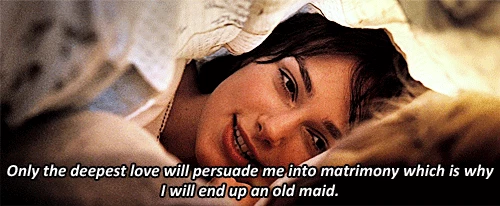
Austen’s heroines are also active in shaping their own destinies. Elizabeth Bennet knows that she and her sisters need to marry to be financially secure for life. After their father dies, their cousin Mr. Collins will inherit their home and could legally throw them all out. In order to provide for themselves, their widowed mother, and any unmarried sisters, they must marry. However, Elizabeth insists on marrying for love. She even rejects her cousin Mr. Collins’s marriage proposal because she neither loves nor respects him – thus preventing her family from being able to stay in their house through her marriage. Elizabeth has seen the fallout from her parents’ loveless and respectless marriage, and she refuses to settle – not even to gain her and her family a home.
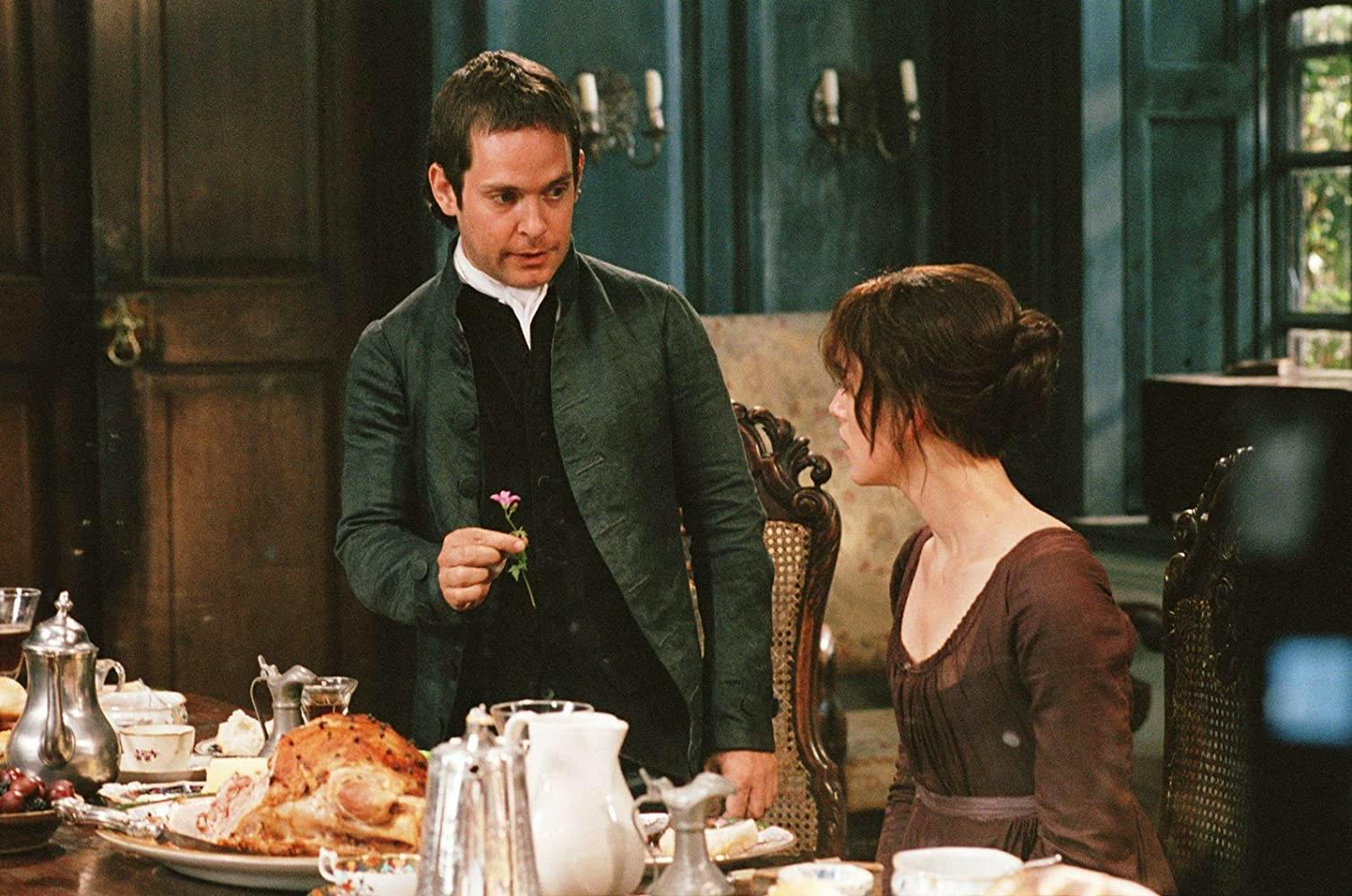
We cheer for strong women who uphold their standards for their own life, even if they’re countercultural or inconvenient. We also don’t want to settle. We also want to live our life on our terms and by our principles.
Change My Status to “In a Relationship”
Dating was a public affair in the 1810s. It was done in the family setting or at balls or on group outings with your friends and neighbors. A woman could only be alone with a man or write letters to him if they were engaged. So if you wanted to encourage a certain someone, you would have to find ways to flirt and encourage him while maintaining good manners in public. Glances, the amount of time spent talking to one person out of the group, choosing where to sit in a crowded room, walking next to him, accepting an offer to dance — these were your options for conveying romantic interest. And the whole time other people watched and gossiped, made assumptions and discussed your choice, approved or disapproved.
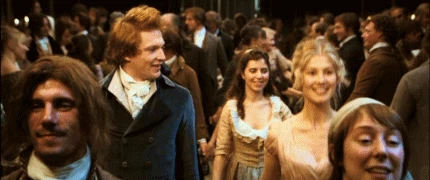
Today, we have social media where we can make our relationships public in addition to dating in public spaces. People still abstract and hypothesize and gossip about our relationships from what we post on FB and Instagram. And we still have to figure out how to convey interest or interpret someone else’s interest — whether it’s over text or at happy hour. Navigating flirting and dating in public with good taste is something that Austen’s characters had to figure out, and so do we.
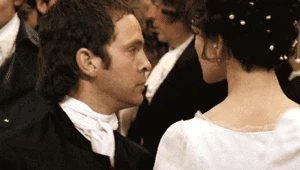
Seeking Social Acceptance before Instagram
Striving for social acceptance and promoting your self image are not new. And being accepted by a social class in Austen’s day was a bigger deal than being accepted by the popular girls clique in sixth grade (although it sure doesn’t feel like that when we’re in sixth grade). Distinct social classes were still part of Austen’s culture, and ambitious men and women used marriage to climb the social ladder. Caroline Bingley, for example, is the daughter of a wealthy merchant who is trying to climb into the class above her — the landed gentry — by marrying Mr. Darcy. This explains part of her acidic jealousy towards Elizabeth Bennet (who is technically Darcy’s social equal).
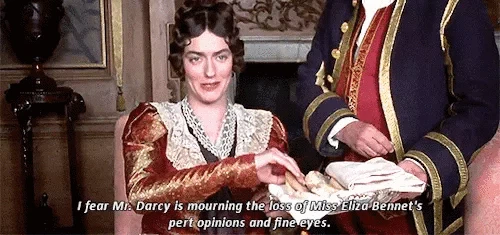
While most women today aren’t desperate to get a man to secure financial protection or to raise themselves above others, we still have the problem of a limited supply of good men and a large demand. We still promote our best image and want other people to affirm that we’re attractive and have value. And there are still plenty of Caroline Bingley’s out there willing to manipulate, fish for compliments, insult, and tease to make herself look better and her rival look worse. Only instead of it being limited to in-person conversations like in the 1810s, now it’s all over the internet and various social media platforms. The pettiness and maliciousness of a woman desperate to get a man hasn’t changed in 200 years.

If we’re on the receiving end of another woman’s pettiness, let’s follow the example of Elizabeth Bennet and Elinor Dashwood — keep it classy and keep it kind.
Bad Boys Then and Now
Centuries before the terms “player,” “ghosting,” or “gaslighting” were used as dating jargon, Jane Austen was creating characters who were guilty of them. In Sense and Sensibility, the charming Mr. Willoughby strings along the passionate Marianne Dashwood for months, knowing he ultimately won’t marry her because she is too poor. He flirts with her shamelessly, takes her to see the house he will inherit without a chaperone, asks for a lock of her hair, and corresponds with her (actions that make her family suspect they are secretly engaged). But when Marianne visits London where Willoughby is also vacationing, he ghosts her. He ignores her letters and avoids meeting her. Then he publicly humiliates her at a party by pretending he barely knows her. When Marianne demands an explanation for his changed behavior, he gaslights her, saying she has overinterpreted his “esteem for her whole family” and that she was the one who wanted him to take a lock of her hair.
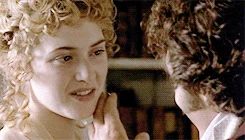
Reading Austen’s books can teach us the warning signs of unhealthy relationships as all her books have a charming but (to varying degrees) wicked man the heroine learns to see through. This lesson is still applicable because losers and users have been acting the same way for centuries.
Moving On
Remember your first break up? It felt like you were never going to recover. You were never going to be able to get over your ex and move on. This experience is not a purely modern one. In Sense and Sensibility, Marianne Dashwood, after being jilted by Willoughby, whom she really loved, wallows in her grief. Because her personality and philosophy are all about embracing her feelings and expressing them openly, she not only feels like she can’t move on, but she won’t even try. She neglects her health, and when she falls ill, she almost dies. Marianne later tells her sister Elinor, “I saw that my own feelings had prepared my sufferings, and that my want of fortitude under them had almost led me to the grave. My illness, I well knew, had been entirely brought on by myself, by such negligence of my own health, as I had felt even at the time to be wrong. Had I died — it would have been self-destruction.” 200 years later, and we can relate to Marianne’s pain at being dumped, to feeling like we were the one who loved more, and like we’ll never recover, so why even try?

We see a similar experience in Persuasion, where Anne Elliot is persuaded by her family and friends to break off her engagement with the man she loves, Frederick Wentworth, because he doesn’t currently have a job. Eight years pass, during which Anne remains in love with Captain Wentworth. When the two meet again, it’s through Anne’s inability to move on — or as Anne more poetically describes it, her faithfulness in love even without hope — that ultimately wins Captain Wentworth back. Modern readers can relate to Anne’s pain (cue Taylor Swift’s “You Belong With Me”), and we’re comforted by seeing her heartbreak have a happy ending.
Finding the Prince among the Frogs
We all know the potential for fakeness that comes with using dating apps or social media. It’s easy for someone to edit a photo or to only post the hot pics. Even in person, we have to be observant to figure out if someone is being genuine with us or is just playing games. And it wasn’t incredibly different in Jane Austen’s day — even without the internet.

One truth that Austen demonstrates in every novel is that judging the character of other people is difficult. Appearances can be deceiving, and we can be blinded by our own pride or imagination. In Austen’s novels, art imitates life: We see the good guy mistaken for the bad guy (Mr. Darcy) and the bad guy mistaken for the good guy (Mr. Wickham, Mr. Willoughby, and Mr. Elliot). We see people misrepresenting themselves for ulterior motives (Frank Churchill flirts with Emma Woodhouse to disguise his secret relationship with someone else). We see people completely misunderstand others because they let their imagination run away with them (Catherine Morland and Emma Woodhouse).
Austen’s novels remind us that people are complex and that not only do we need to be intelligent and alert observers, but we also need to be humble and open to updating our judgements when evaluating the character of other people — or else we’ll get ourselves into trouble or heartbreak or both.
When Following Your Heart Can Be Bad
In Jane Austen’s day, marriage really was “until death do you part” – even if you were miserable. So, the importance of making a good marriage couldn’t be stressed enough. But human beings in the 1810s were still human beings. Some of them made poor choices by “doing what feels good” and “following their heart” without self-control or rational thought, and Austen shows us the negative consequences. Their example is still relevant for us as we seek love and long-term commitment.
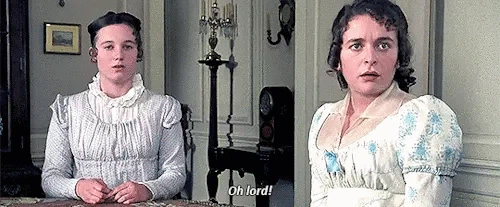
In Pride and Prejudice, 16-year-old flirt Lydia Bennet elopes and then lives with Mr. Wickham — a man who had no intention of marrying her but used her as an excuse to skip town and avoid paying his debts. There is no real love or even friendship between them, only vanity and lust. But because Lydia thoughtlessly committed herself to this imprudent man, she spent the rest of her life with someone who neither loved her nor had the self-control to support her financially. Additionally, Lydia’s and her family’s reputations were tarnished. While we may not get stuck for life with a user, we might let our unchecked feelings blind us to a user, involving us in an unhealthy relationship that will only lead to misery and pain.
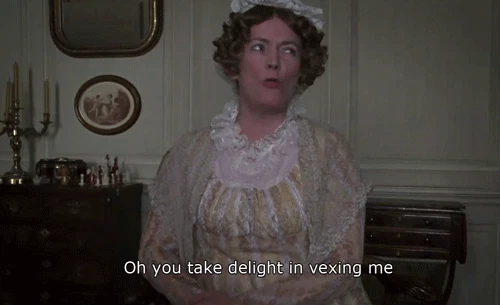
Lydia’s parents also suffered the negative consequences (as did their children) of a marriage that had been formed by “doing what feels good.” Mr. Bennet had married Mrs. Bennet because she was fun and pretty — but she wasn’t someone whom he was intellectually compatible with, and he now despises her. He can’t respect her and she can’t understand him. This inequality of mind and Mr. Bennet’s open disrespect of his wife impacts their whole family in unpleasant ways every day. Their unhealthy marriage drives home Austen’s philosophy about successful relationships — you need both chemistry and compatibility.
We All Just Want True Love
And that’s what we modern readers still want for ourselves — a relationship founded on chemistry and compatibility. We still want to be loved, understood, and respected. We want to find worthy men and have matches of equality. We don’t want to give up our principles, and we don’t want to settle. And Austen’s protagonist couples achieve that, showing us what true love looks like.
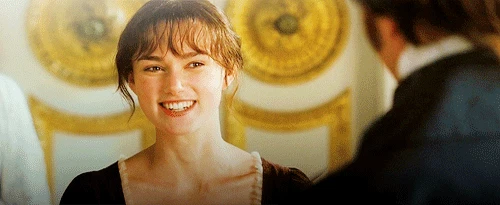
Consider Mr. Darcy and Elizabeth Bennet from Pride and Prejudice. Darcy is attracted to Elizabeth’s “fine eyes” and playful personality. (Chemistry? Check.) Their personalities and their characters are complementary: Lizzy’s playfulness and spunk lighten Darcy’s personality, and Darcy’s seriousness grounds Lizzy. They are both willing to engage in the painful work of self-reflection and self-improvement. They are willing to be open and honest with each other. They both value what is wise and good. (Compatible? Check.) Is it any wonder that they are one of the most famous couples in all of literature? Or that we all want to achieve a happy ending like theirs?
Closing Thoughts
Austen’s protagonist couples show us what we need to do to achieve happy and healthy relationships. Austen doesn’t sugarcoat the hard work and painful growth her heroines have to go through to find true love. She shows us how to navigate dating and discerning people’s true character. She shows the substance that’s necessary for a long-term, committed relationship. And these necessary elements are still applicable to our modern relationships today. So yeah, I’d say dating and marriage haven’t changed all that much.